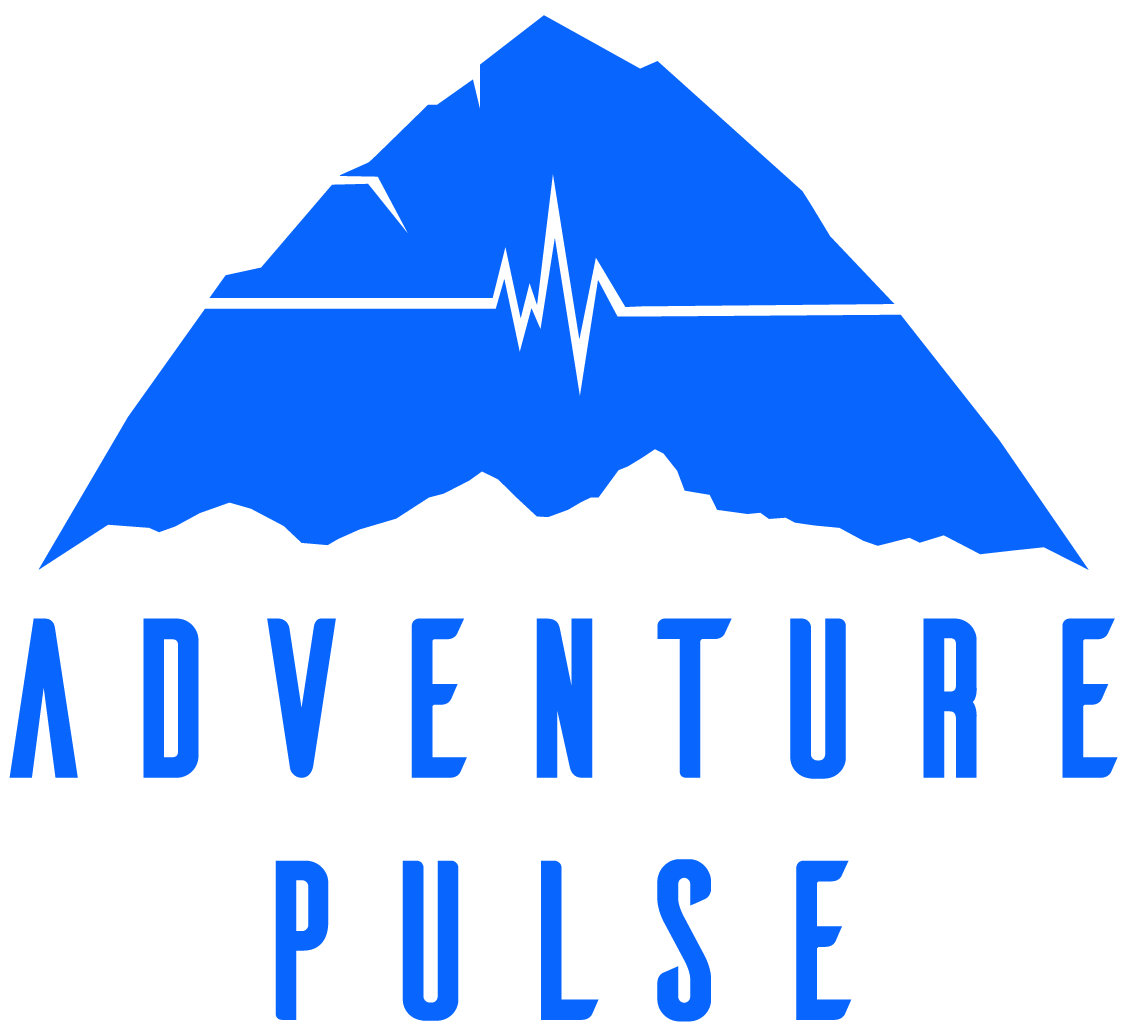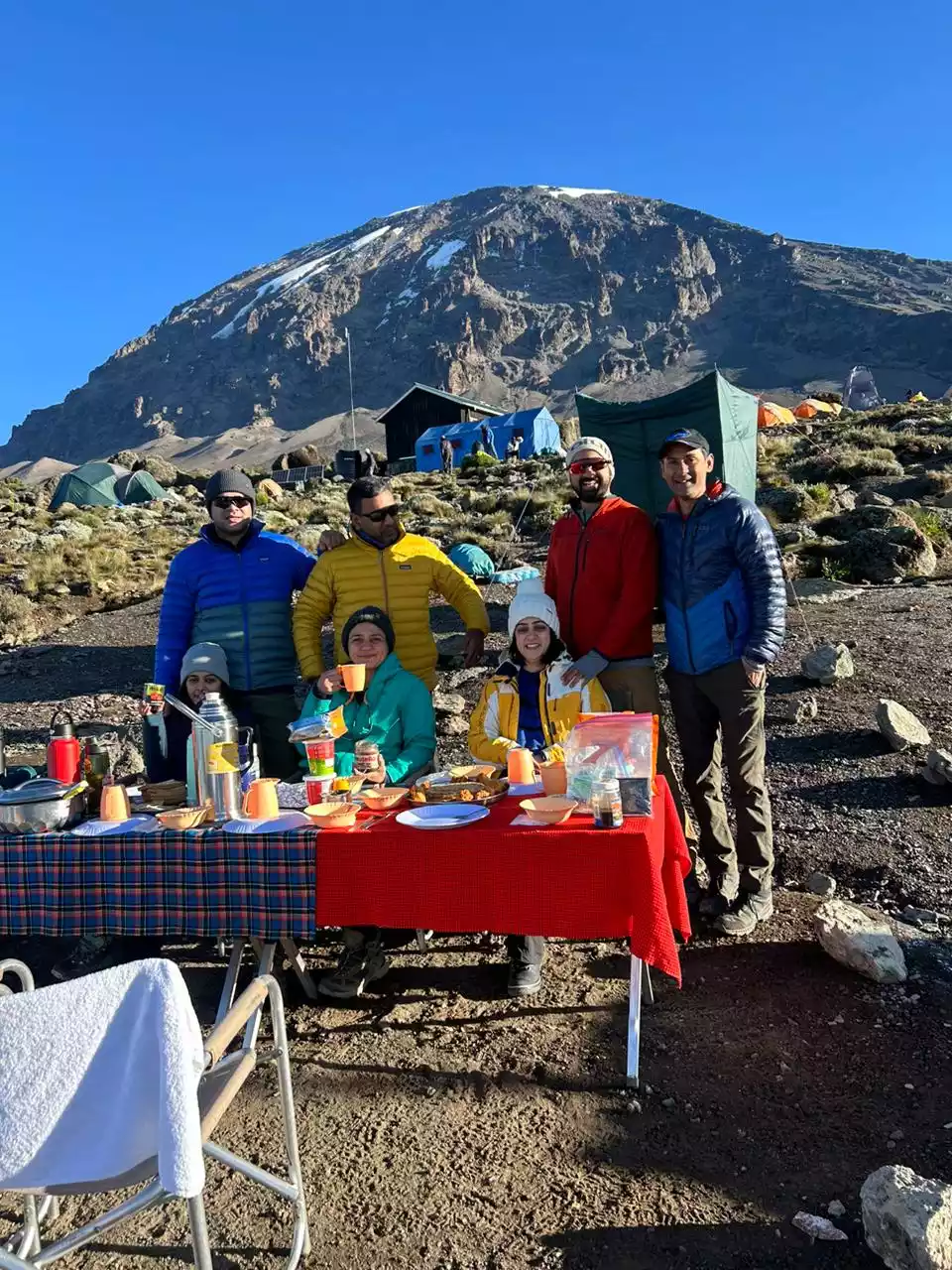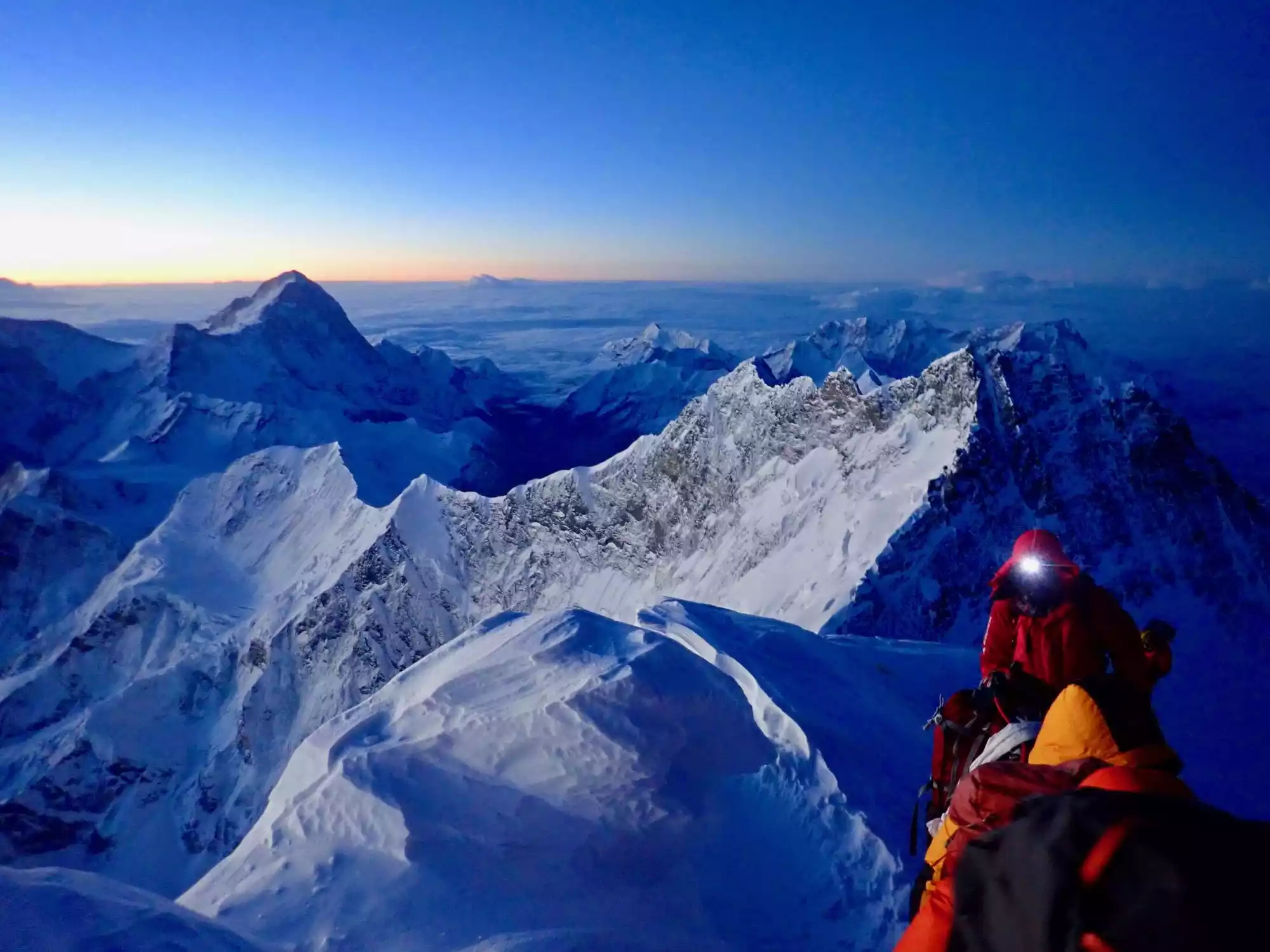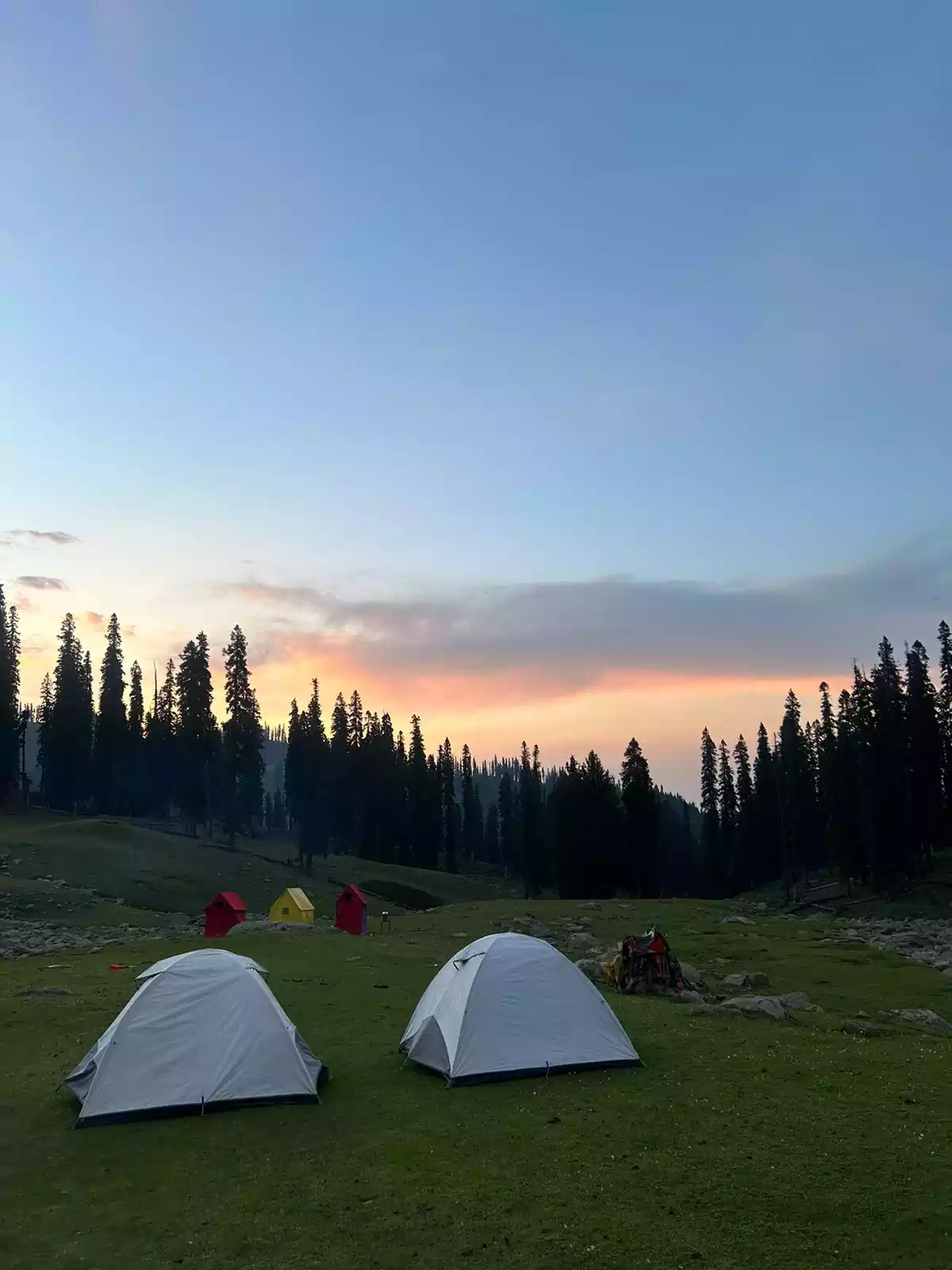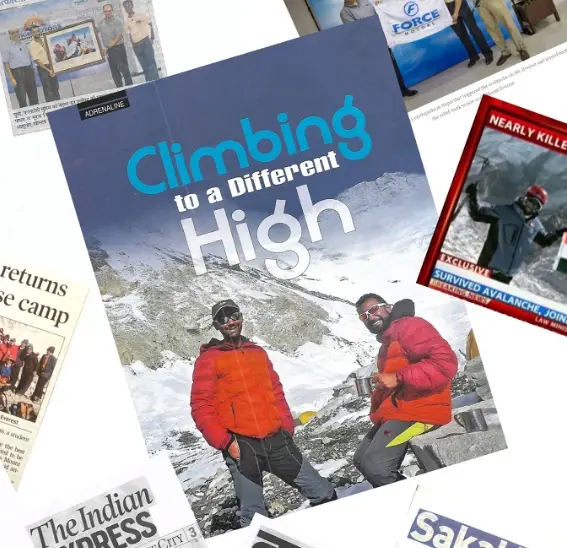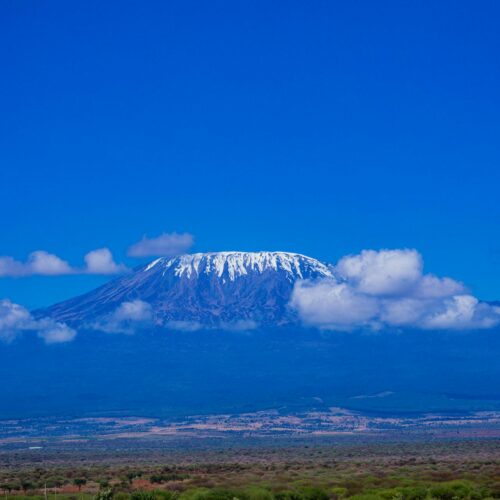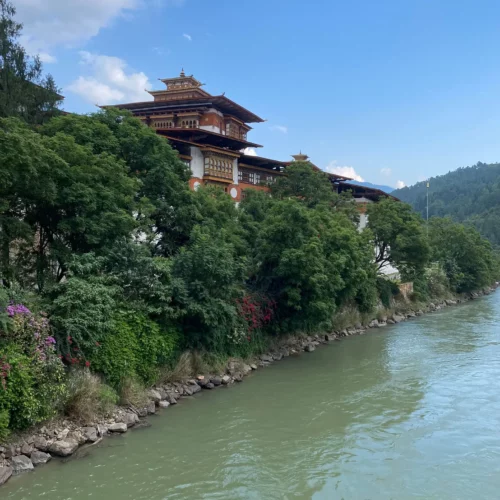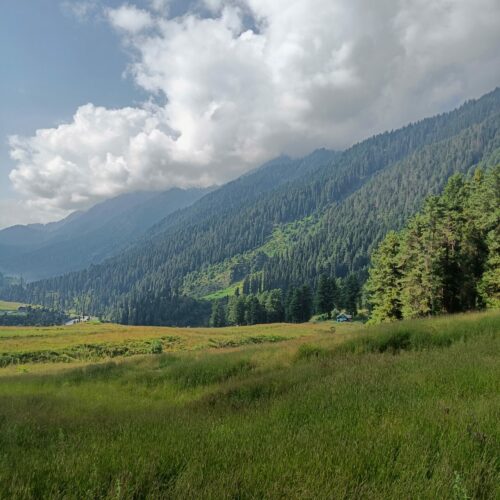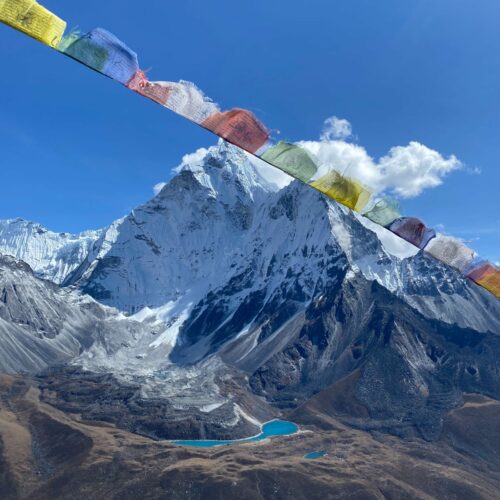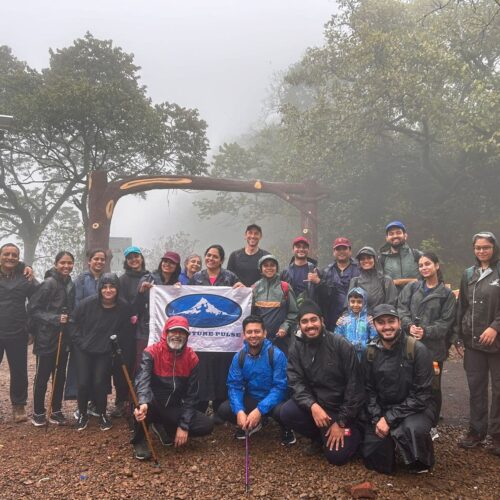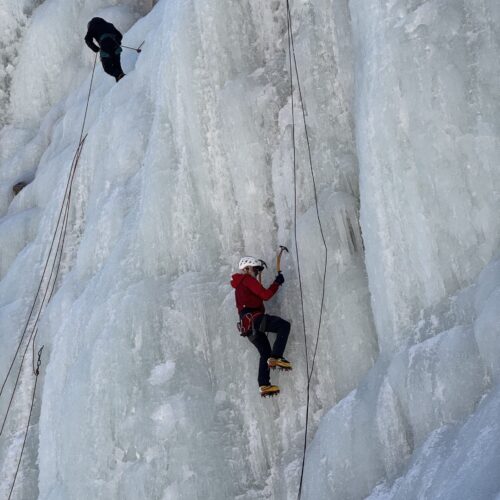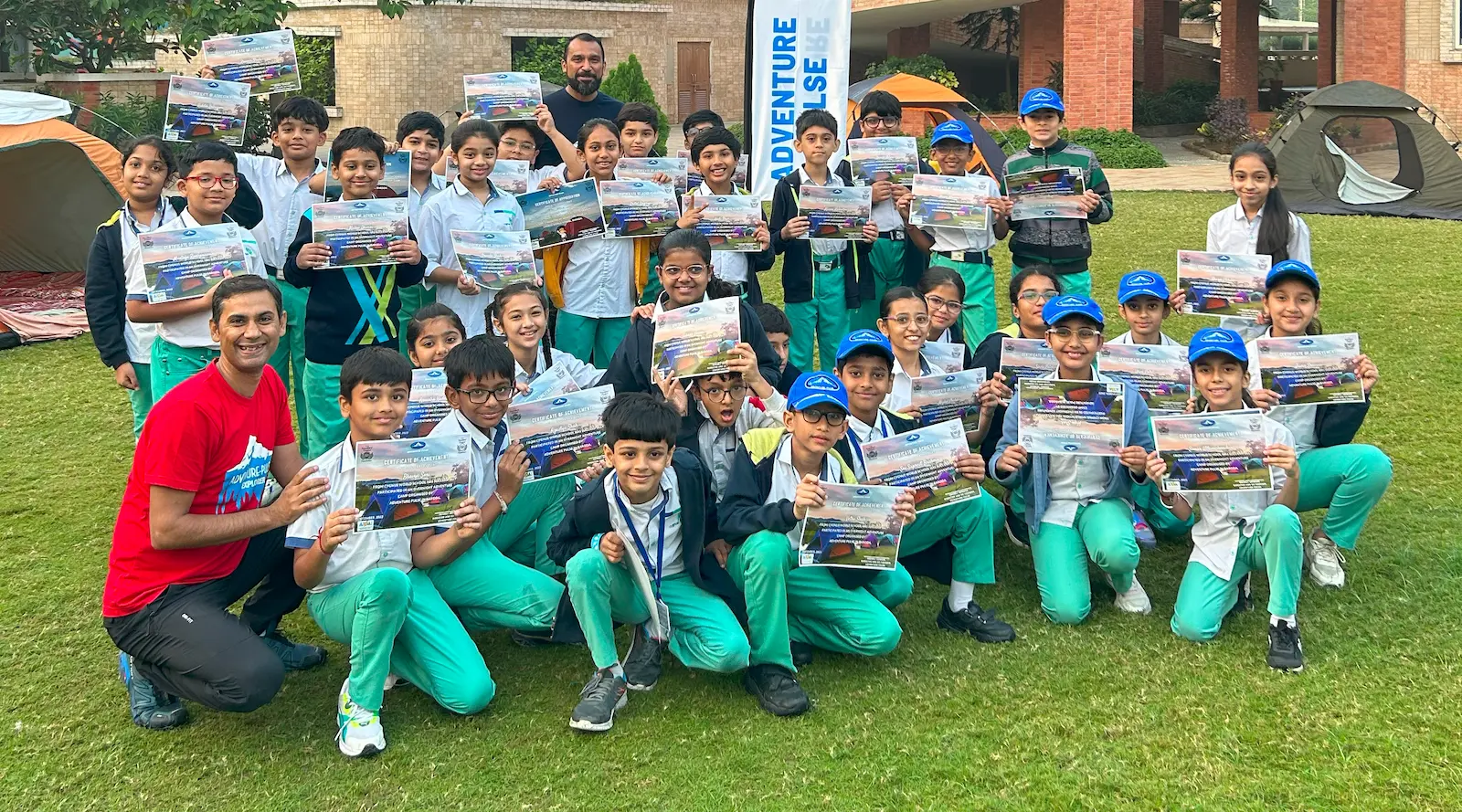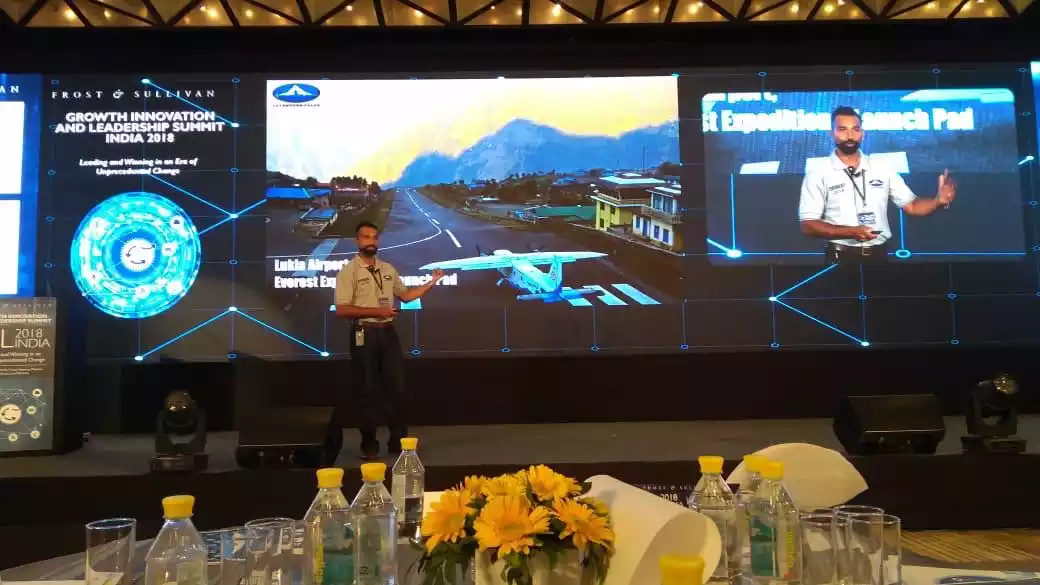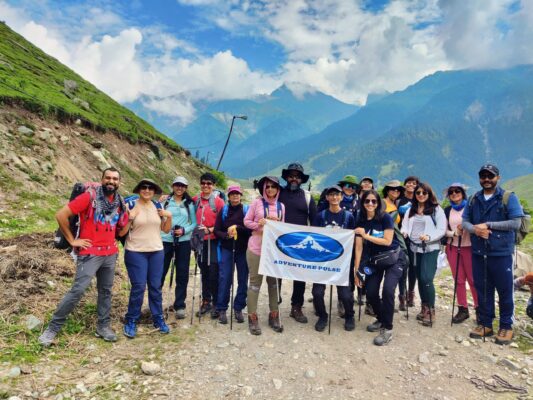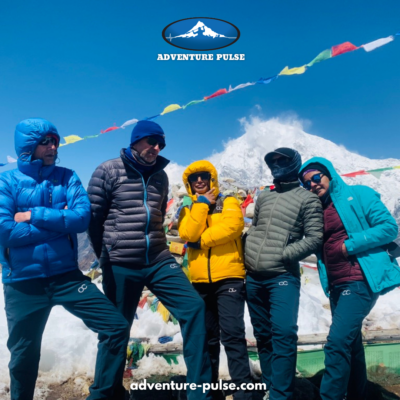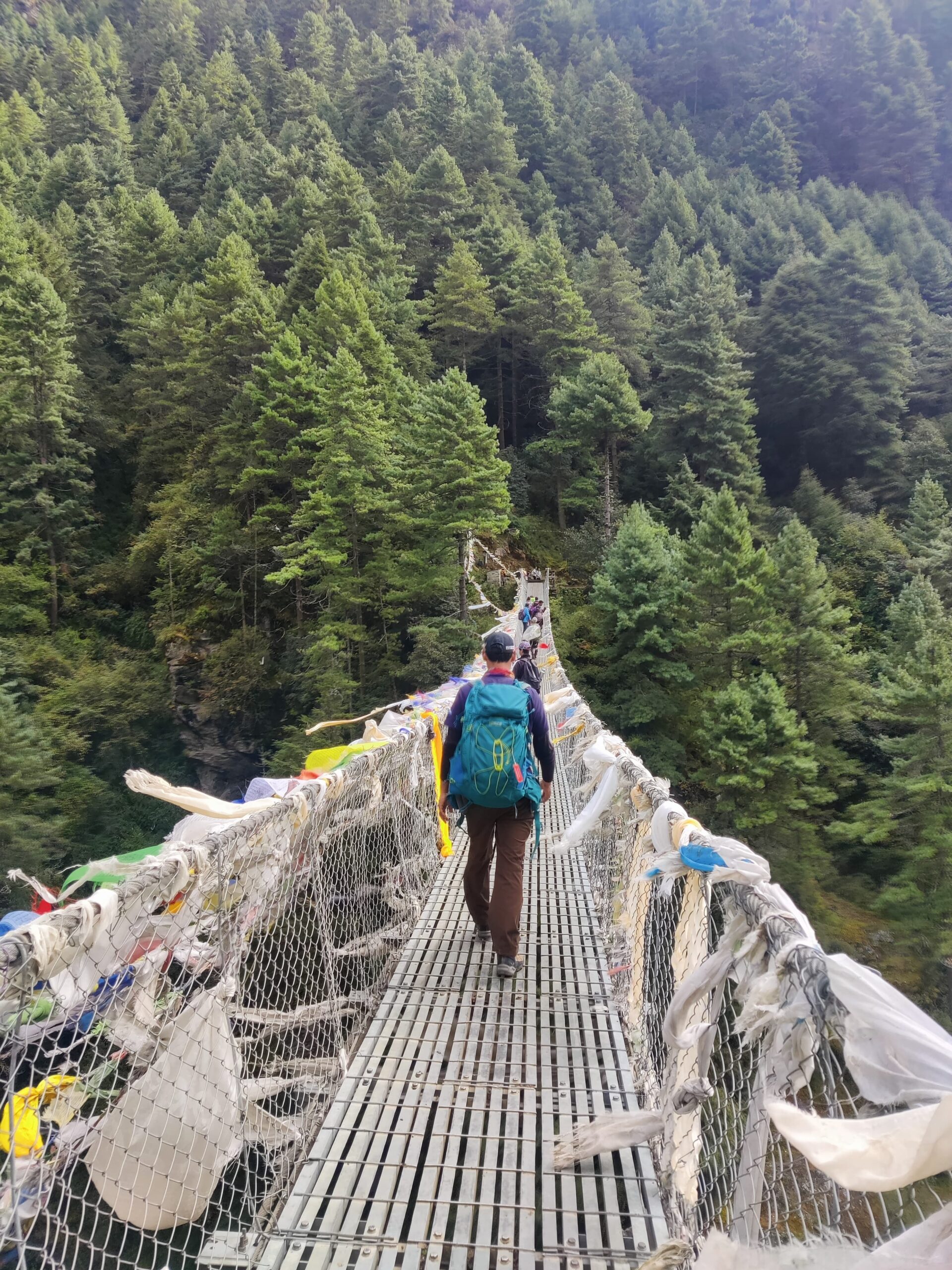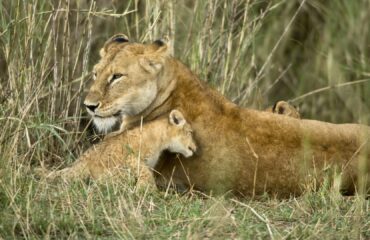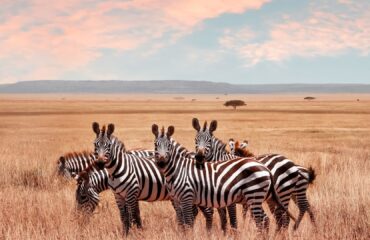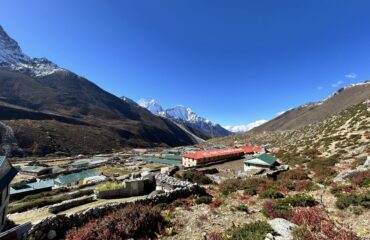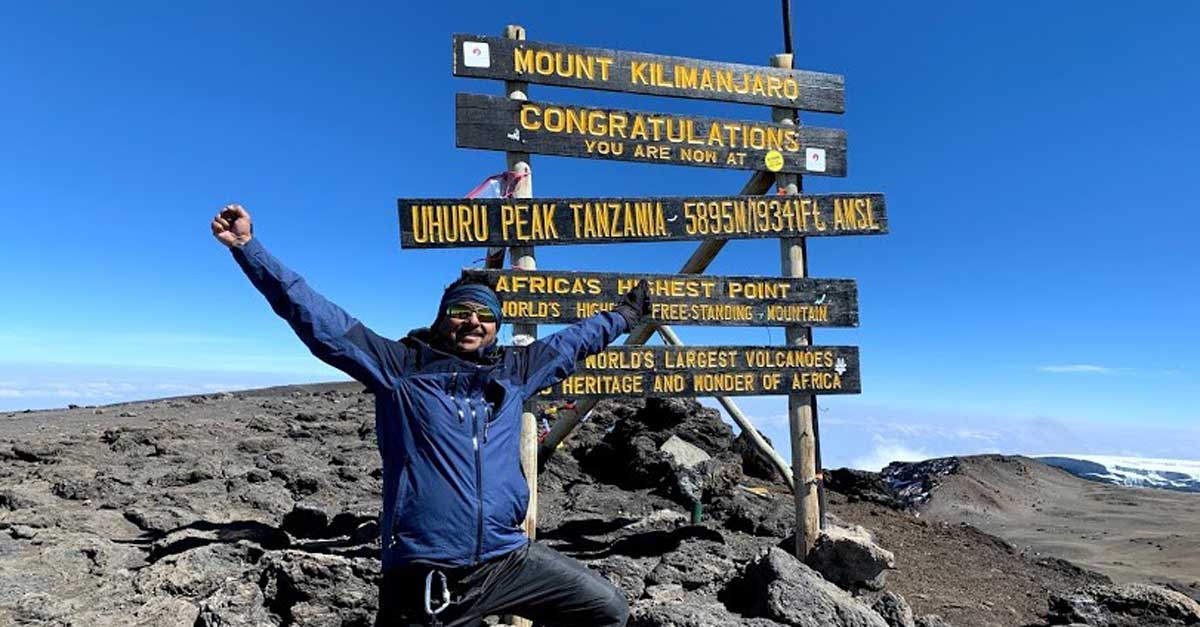
This August a couple of my college friends and I spent a week on Mt. Kilimanjaro. We were part of a group of a dozen that undertook the 6N/7D trek to the summit – Uhuru Peak – via the Machamé route. At 5895 metres (19341 feet) amsl, Mt Kilimanjaro is the highest peak in Africa and the tallest free-standing mountain in the world. Trekking, like long-distance running (which I also enjoy), affords you hours of solitude, and gave me a lot of time to think and reflect. I have attempted to capture some of these thoughts below.
1: Life is Tough.
When the plans first came up, I was told that Kilimanjaro is not a technical climb and a reasonable level of fitness would get you to the top. I consider myself ‘reasonably fit’, so I excitedly signed up. But don’t be fooled! Climbing Mt. Kilimanjaro is not just a walk up a mountain. It’s TOUGH! The ascent is steep. The terrain changes daily, the climate hourly. It’s high altitude which means headaches, nausea, fatigue and maybe even the runs – it’s tough. Sleeping in tents sounds like fun, right? Yes, but when the temperature is well below freezing and you need to answer nature’s call at night – ooh, tough! Walk. Climb. Sleep. Freeze. Eat. Repeat. For seven days? Very tough. But when you’ve done the day’s work; when you’ve made it to the top, it feels great and oh so worth it, you throw up your hands and celebrate!
Reflection:
Life it tough. Deal with it. But don’t forget to celebrate your victories.
2: It’s not always as it seems.
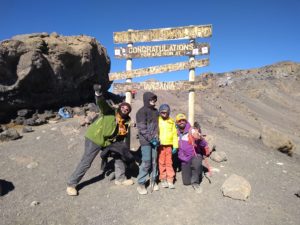
mount Kilimanjaro
As we trudge up the mountain trail, the guide points out the next camp. It seems far, far away and way up high! “How will I ever get there?” I think, as I sized up the goal, stopping to take in a deep breath. But you keep going, and you get there. You make it.
Then there’s the “Illusion of Stella Point” – Stella Point is at the crater’s rim, around a kilometer before the summit, Uhuru Peak. Many climbers fail to make it beyond Stella Point. And as you put one step ahead of the other in the magical light of the sun’s first rays, the guide points out Stella Point above. “Ah. it’s just there”, I sighed, expecting to reach it in a hop, skip and a jump. But it took me a another three gruelling hours to get there!
Reflection: Things are not always as tough as they look. Things are not always as easy they look. But stick to it and you’ll get there.
3: It’s all in the Planning.
We were 12 climbers in the group. Our support team was 53! The expedition was 7 days. The team needed to carry all that was needed for 65 of us to live on the mountain for a week. And it felt like we had everything : foam mats to sleep on, abundant food – even mayonnaise and tabasco! Medicines for almost anything – altitude sickness, muscle aches, water purification, hydration, the runs! Camping Gear – sleeping tents, dining tent (with chairs, tables with table cloths & solar-powered lights), kitchen tents, cooking utensils, stoves, et al. All credit to our organizer, Samir Patham.
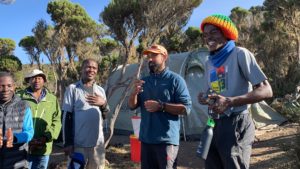
mount Kilimanjaro support team
On a personal level too, sensible planning is critical – packing the right clothes to manage the varying temperatures, the right shoes, foodstuff, personal medication, and then ensuring it all fits into one back-pack no more than 12 kilos. This was a great lesson and demonstration of Resource Planning.
Reflection: If you fail to plan. You plan to fail.
4: Go Slow. Go Together.
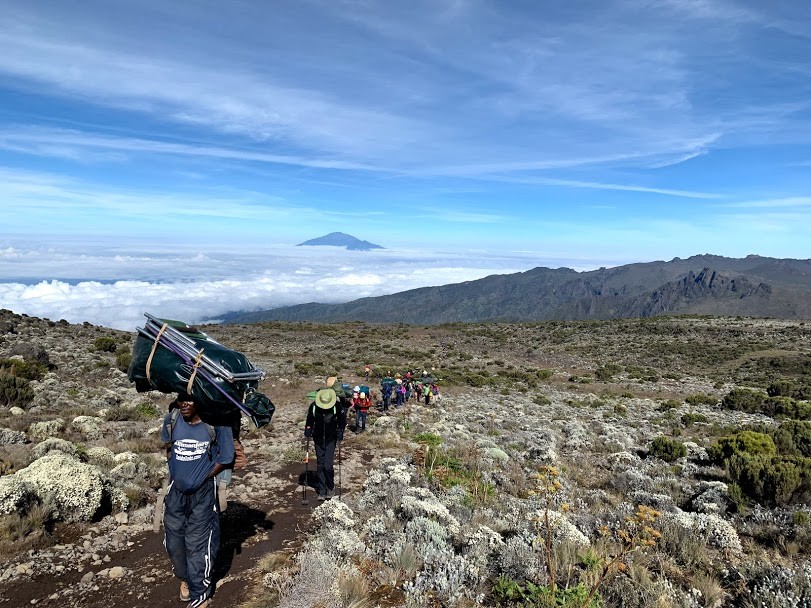
Kilimanjaro photos
“Polé! Polé!” These two words probably define the Kilimanjaro Climb. It means “Slow! Slow!” in Swahili. You are constantly reminded to go “Polé! Polé!” – by the guides, by the porters who pass you, and even by my team mates for whom it soon becomes a guiding principle. While climbing the mountain taking it slow is critical to maintaining a steady heart rate and acclimatizing to the high altitude. It also keeps the group together and builds camaraderie, which is what it’s all about, isn’t it? Apart from these two words that play in my mind, the visual memory that sticks with me is “Agrey Pace” – the steady pace that our ever-smiling guide Agrey would set for us and keep his flock together. One step after the next steady step. Each foot barely crossing the other with each step. It had a soothing and reassuring rhythm to it. Check out the video here
The same applies to life. As we navigate through the madness of Life – work, family, relationships, traffic – we often fail to stop and smell the roses, we fail to pause and breathe, we fail to take time for ourselves. Once in a while we must slow down. Go Polé, Polé. As an old African saying goes: If you want to fast, go alone. If you want to go far, go together (and go slow).
5: When you give. Give selflessly.
“Did you say you had a support team of 53?!?” you might ask bewildered. Yes! And these are the true superheroes of Kilimanjaro who make it happen for hundreds of climbers like us each year. It is a large team, indeed, but all with clearly defined roles – guides, cooks, helpers, dish-washers, camp managers, porters and even two folks dedicated to the portable loos! While I’ve mentioned that it’s a tough experience, these guys really do everything to help you. 6am : there’s a rustle at your tent as two heroes wake you with a cup of steaming tea and a wide grin as you unzip the tent to a blast of freezing mountain air. 6:30am : a pail of warm water is delivered so you can have a wash and thaw your paws. 7am : breakfast at the dining tent, and at 8am we’re off on the day’s trek. Around 30 to 45 minutes later… the air rings with calls of “Jambo!” the Swahili greeting which means “Hello!” and our team of heroes pass us by carrying our entire campsite on their heads and shoulders. https://youtu.be/vJw95Bpbrwg Each one carries around 20-25 kilos, while we struggle with our 3-4 kilo day back-packs! By the time, we reach the next camp after a 6 to 8 hours hike, we are greeted with warm smiles and hugs accompanied by the rhythmic and energising sounds of the Kilimanjaro songs and chants. https://youtu.be/yNyuas0ZIWo
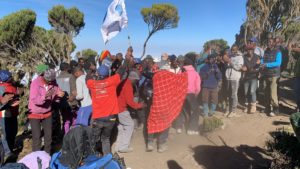
adventure pulse Kilimanjaro team
Another lasting memory of selflessness was when one of the porters noticed my young co-trekker’s shoe-laces undone, he not just pointed it out but bent down and tied the laces! All the while carrying his heavy load. Despite the really hard work on the mountain and the tough lives that they lead (the porters’ wage is 10 dollars a day), they are always smiling, singing and sharing high fives. They truly gave off themselves selflessly to ensure we had a comfortable, safe and successful climb.
Reflection: Our success on the mountain was in large measure due to our support team. In life too, there are many around us who deserve credit for what we achieve, whose contributions we sometimes fail to acknowledge.
6: Count your Blessings. Be Grateful.
On the mountain, one is forced to ‘make do’. I began to miss the material comforts back home. The warmth of my bed, the familiar food, hot water baths, my filter coffee. I chatted with the ‘team’ and heard about their lives. When we descended from the mountain and walked out of the park gates young children ran up pleading for “Chocolate! Chocolate!” At times I felt very alone on the mountain. A lot of time to myself. To think. To reflect. I missed my family. I missed my daughter. I thought of my childhood. I felt fortunate to be able to do this. I thought about how I often wanted more and realized that I already had pretty much all I needed. Then I thanked the Almighty and the Universe for all that I had. I counted my blessings and I felt good. I am blessed.
Lesson: Be grateful for what you have. Everyday. (Not only when you’re on a mountain!)
Life is a great teacher. It throws us little lessons as we go about living our lives. And every once in a while it makes us pause and reflect. This experience was one such. Thank you, Kilimanjaro. Thank you, Life.
This article was originally published on September 2, 2019 – https://www.linkedin.com/pulse/reflections-mountain-sanjay-roy/
Author – Sanjay Roy
(Head – Trade Marketing & Imports at United Breweries Ltd.)
